Founded in 2011, the Fair Food Standards Council (FFSC) oversees implementation of the Fair Food Program, a unique farmworker- and consumer-driven initiative consisting of:
- A wage increase supported by a price premium paid by fifteen corporate purchasers of Fair Food Program product;
- Human rights-based Code of Conduct, applicable to all Participating Growers spanning ten states from Florida to California and eleven different types of crops; and
- Market-based rewards and consequences that incentivize compliance with the Code.
The price premium and the Code of Conduct, which were developed by workers, growers, and corporate buyers, form the foundation for a new model of social responsibility.
The Fair Food Program emerged from the Coalition of Immokalee Workers’ (CIW) successful Campaign for Fair Food, a campaign to affirm the human rights of tomato workers and improve the conditions under which they labor. In 2015, the FFP expanded to the summer operations of Florida-based growers in Georgia, North Carolina, South Carolina, Virginia, Maryland and New Jersey. Since 2020, the FFP has been steadily expanding to new states and crops, adding new growers in Florida, Maryland, North Carolina, Tennessee, Colorado, and California as well as cut flowers, sweet potatoes, lettuce, herbs, squash, peaches, and melons.
Comprehensive, Verifiable and Sustainable Change
The high degree of consolidation in the food industry today means that multi-billion dollar brands on the retail end of the industry are able to leverage their volume purchasing power to demand ever-lower prices, which has resulted in downward pressure on farmworker wages. The Fair Food Program reverses that process, enlisting the resources of participating retail food giants to improve farmworker wages and harnessing their demand to reward growers who respect their workers’ rights.
The Fair Food Program provides an opportunity for those corporations to bring their own considerable resources to the table – their funds and market influence – to help forge a structural, sustainable solution to a human rights crisis that has persisted on U.S. soil for far too long. In the process, the Fair Food Program is building the foundation for a stronger agricultural industry that can differentiate its products in produce aisles and restaurants on the basis of a credible claim to social responsibility and so better weather the challenges of an increasingly competitive marketplace.
Program Elements
Under the Fair Food Program, Participating Growers have agreed to:
- A wage increase supported by the “penny per pound” price premium Participating Buyers pay for their produce;
- Compliance with the human rights-based Code of Conduct, including zero tolerance for forced labor, child labor and sexual assault;
- Worker-to-worker education sessions conducted by the CIW on the farms and on company time to ensure workers understand their new rights and responsibilities;
- A worker-triggered complaint resolution mechanism leading to non-adversarial complaint investigations and corrective action plans;
- Health and safety committees on every farm to give workers a structured voice in the shape of their work environment;
- Specific and concrete changes in harvesting operations to improve workers’ wages and working conditions, including an end to the age-old practice of forced overfilling of picking buckets (a practice which effectively denied workers pay for up to 10% of the produce harvested), the provision of shade in the fields, and the use of time clocks to record and count all compensable hours accurately;
- Ongoing auditing of the farms by the Fair Food Standards Council to ensure compliance with each element of the Program; and
- Market-based rewards and consequences that incentivize compliance with the Code. Participating Growers in good standing receive purchasing preference from Participating Buyers, while zero tolerance violations, or repeated failure to comply with agreed upon corrective actions, result in suspension and inability to sell to Participating Buyers.
FFSC is based in Florida, and has responsibility for implementing, monitoring, and enforcing the Fair Food Program.
Mike Rios is Executive Director of the FFSC.
